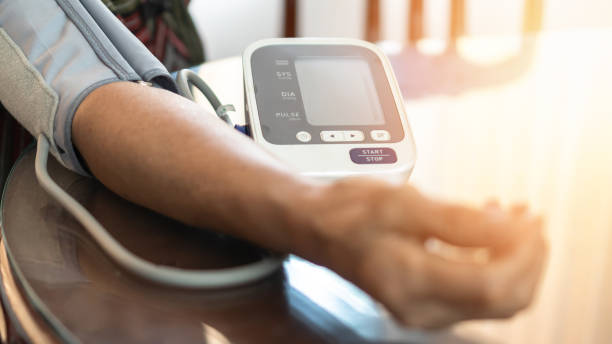Why is my systolic pressure high?
High systolic blood pressure can have many causes. As we age, our arteries stiffen, and over time this contributes to high blood pressure. The genes we inherit also can cause high blood pressure. Certain underlying conditions like thyroid disease, cortisol excess, and obesity can also cause high blood pressure.
What is dangerously high systolic blood pressure?
If you get a blood pressure reading of 180/110 or higher more than once, seek medical treatment right away. A reading this high is considered “hypertensive crisis.”
Blood pressure readings are measured by healthcare professionals in order to monitor health and predict the risk of developing conditions such as stroke, heart attack or kidney disease. Blood pressure is recorded as 2 numbers -- the systolic over the diastolic, and both readings, if elevated, can signal high blood pressure. Ongoing or chronic elevations in systolic blood pressure are sometimes linked to an underlying health problem. However, most high blood pressure, or hypertension, has an unclear cause, but may be linked to genetics, aging, medications and lifestyle habits.
Primary Hypertension
About 95 percent of adults with chronic high blood pressure have primary hypertension, also known as essential hypertension, according to a January 2014 report in "Journal of Clinical Hypertension." This diagnosis means there is no underlying medical condition to explain the high blood pressure. Isolated systolic hypertension (ISH) is diagnosed when the systolic, or top number, is 140 or higher, but the diastolic number is below 90 and not in a hypertension range. ISH is the most common subtype of primary hypertension in people over the age of 50, according to a March 2015 article in "Journal of the American Society of Hypertension."
While the cause may not be completely understood, ISH is commonly associated with age-related stiffening of the aorta, the main artery in the body, and narrowing of the smaller arteries. These changes make the heart pump blood more forcefully through these vessels, increasing the systolic pressure -- or the pressure when the heart contracts. Other potential contributing factors to primary hypertension and increased systolic blood pressure include increased age, smoking, excess dietary sodium, alcohol abuse, obesity and inactivity.
Secondary Hypertension
Secondary hypertension is diagnosed when an underlying medical condition causes high blood pressure. Systolic readings are commonly elevated in secondary hypertension. Chronic kidney disease causes hypertension, since much of the body's blood pressure regulation takes place in the kidney. Renal artery stenosis, which causes impaired blood flow to the kidneys, and coarctation of the aorta, a congenital condition that causes narrowing of the aorta, also lead to high blood pressure. Endocrine disorders such as thyroid disease, primary aldosteronism, Cushing's syndrome and pheochromocytoma are also causes of high blood pressure, as these conditions disrupt the hormonal balance that keeps blood pressure in a normal range. People with obstructive sleep apnea are also at increased risk of hypertension, as this condition impacts hormones that regulate blood pressure.
Drugs
A number of prescription, over-the-counter and street drugs can also cause high systolic blood pressure. Some of the more common drugs that lead to high blood pressure include non-steroidal anti-inflammatory medications, like ibuprofen (Advil, Motrin) and naproxen (Aleve), decongestants such as pseudoephedrine (Sudafed) and birth control pills. Certain antidepressants, like fluoxetine (Prozac) and migraine medications such as sumatriptan (Imitrex) have also been linked to hypertension. Cocaine and other stimulants can cause severe, life-threatening elevations in blood pressure.
Warnings
If you have high blood pressure, see your doctor regularly and follow your treatment plan, which may include recommendations to limit dietary sodium, eat more fruits and vegetables, exercise, and lose weight. If you are prescribed blood pressure-lowering medications, take these regularly to protect your body from the impact of uncontrolled blood pressure. Don't stop or adjust your medications on your own. If you are having side effects or have concerns about any of your prescribed medication, speak with your doctor. Blood pressure readings that exceed 180/110 are considered a hypertensive crisis and require immediate evaluation by a doctor. If you are experiencing chest pain, shortness of breath, numbness or weakness, vision changes or difficulty speaking, call 911 immediately.








